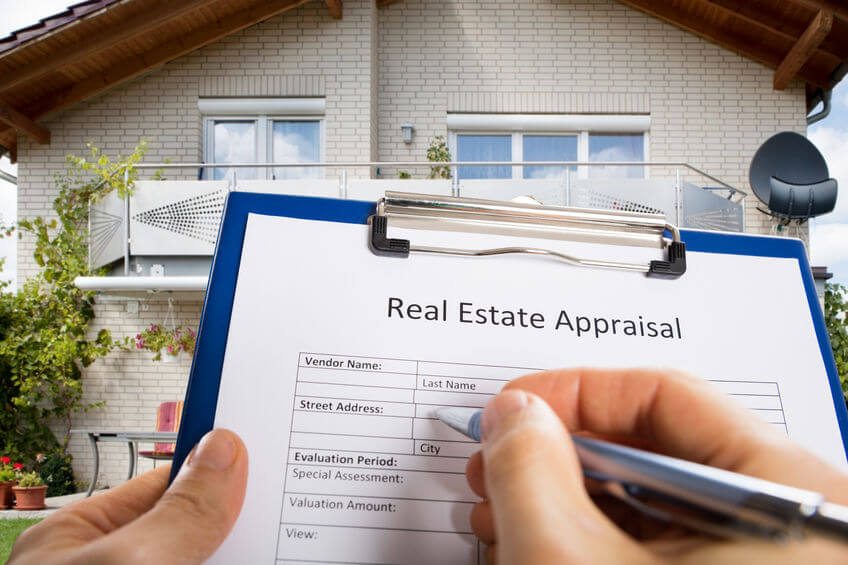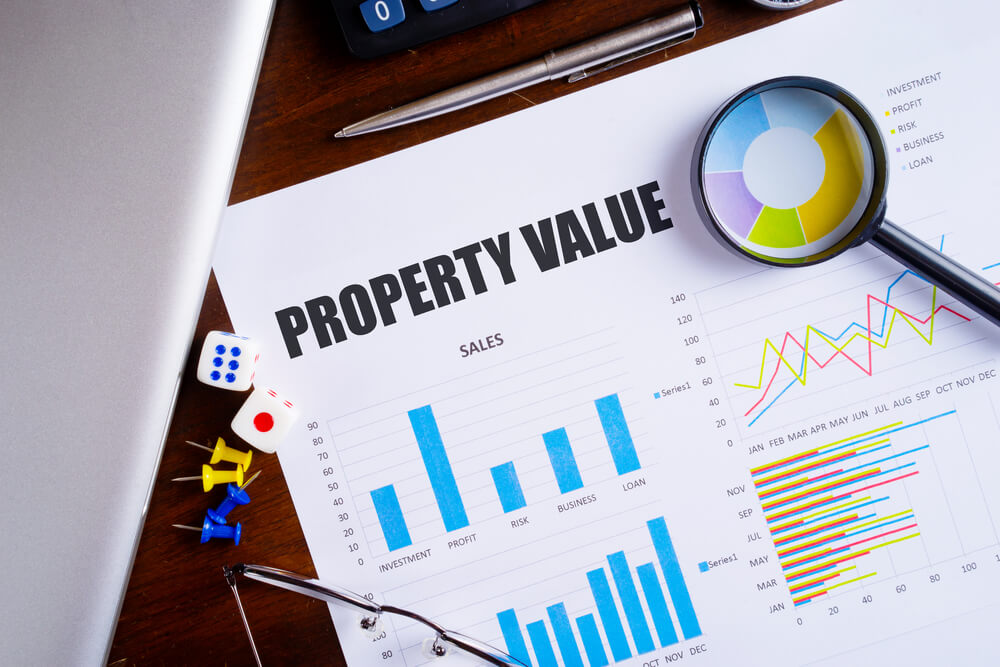The Science of Home Appraisal: Real Estate Appraiser Point Of Views
Wiki Article
Opening the Secrets of Property Evaluation: Just How to Ensure Accurate Evaluation for Your Residential Or Commercial Property
In the world of realty, the procedure of property evaluation holds a pivotal function in identifying its market value. As residential property proprietors or potential purchasers, recognizing the elaborate mechanisms behind this evaluation can significantly affect the outcome of transactions. From the nuanced aspects that sway evaluation figures to the strategies employed to boost residential property well worth, a detailed understanding of these elements can be the setting apart factor between an effective bargain and a missed out on opportunity. By deciphering the tricks of property assessment, one can browse this complicated surface with self-confidence and guarantee that their building is precisely valued.Recognizing Home Appraisal Fundamentals
Home evaluation involves assessing numerous variables that contribute to the total worth of a property. One essential element is the building's place, which considerably affects its market value.Additionally, the present market patterns and financial problems influence the evaluation procedure. An understanding of exactly how these external factors influence property worths is vital for conducting a detailed evaluation. Furthermore, the objective of the appraisal, whether it be for financial investment evaluation, insurance coverage purposes, or real estate tax analysis, can influence the approach absorbed establishing the building's value.

Factors Affecting Residential Or Commercial Property Assessment
Assessing the plethora of factors that affect property assessment is important for carrying out a complete and precise appraisal. One important aspect affecting residential property evaluation is the area. Factors such as closeness to services, colleges, public transport, and capacity for growth can substantially impact the building's value. The residential or commercial property's size and problem additionally play an essential role in its assessment. Bigger properties have a tendency to have higher values, while the overall problem of the residential or commercial property, consisting of age, upkeep, and structural stability, can impact its assessment.Market patterns and economic conditions are other key variables that evaluators think about. Supply and need dynamics, rates of interest, and the general state of the economy can affect just how much a residential or commercial property deserves. Additionally, the residential or commercial property's unique attributes, such as building style, format, and unique amenities, can affect its appraisal worth.
In addition, environmental elements like all-natural disasters, air pollution, and closeness to harmful sites can likewise impact home valuation. Comprehending and examining these various aspects are essential for making certain an exact and detailed residential or commercial property appraisal.
Relevance of Comparable Sales Evaluation
Carrying out a complete equivalent sales analysis is critical in determining the accurate valuation of a building in the realty assessment process. Similar sales, additionally referred to as "comps," refer to recently offered properties that are comparable to the subject residential or commercial property in terms of place, size, condition, and other relevant features. By assessing these comparable sales, evaluators can obtain beneficial insights into the current market trends, need, and prices dynamics that directly impact the building's worth.The importance of equivalent sales evaluation depends on its capability to provide unbiased data on exactly how much similar properties have just recently sold for in the same market. This information aids appraisers develop a reasonable and unbiased assessment for the subject home based upon actual market deals instead than plain supposition. In addition, comparing the subject property to lately sold comparables permits evaluators to factor in any distinct functions or shortages that might impact its worth favorably or adversely (Real Estate Appraiser). Ultimately, a detailed equivalent sales analysis guarantees that the property appraisal is precise, reputable, and reflective of current market problems.
Methods for Improving Residential Property Value
Taking into account the insights gained from a comprehensive equivalent sales analysis, carrying out calculated procedures to enhance residential property value becomes critical in realty evaluation. One efficient method is enhancing aesthetic allure, as impressions substantially impact a residential or commercial property's perceived value. This can be attained with landscape design, fresh paint, and well-kept outsides. Restorations and upgrades to crucial areas such as bathroom and kitchens can likewise produce substantial returns on investment by improving the building and raising its desirability.In addition, enhancing the residential or commercial property layout to make best use of performance and area application can draw in potential customers or renters. This may entail reconfiguring areas, adding storage space services, or developing multifunctional spaces. Energy-efficient upgrades, such as mounting solar panels or boosting insulation, not only boost property value however websites also interest environmentally-conscious individuals.
Lastly, remaining notified concerning market patterns and customer choices is essential for making informed decisions regarding residential or commercial property improvements. Recognizing what attributes are in high need can direct calculated upgrades that line up with market assumptions, eventually enhancing the building's overall worth.
Navigating the Property Evaluation Process

After collecting all appropriate data, the following step involves using different official source evaluation methods to identify the residential property's worth properly. These methods might include the sales contrast approach, cost approach, and revenue technique, depending on the sort of building being appraised. The final appraisal report will detail the evaluator's searchings for, including the residential property's approximated value and the reasoning behind the appraisal.
Browsing the property assessment procedure calls for cooperation between the homeowner, evaluator, and any kind of other engaged parties to make certain a smooth and accurate valuation.
Conclusion
Finally, exact property evaluation is important for establishing the real well worth of a residential or commercial property. By comprehending the informative post basics of building valuation, analyzing aspects that affect evaluation, making use of comparable sales data, and executing strategies to boost residential property worth, property owners can make sure a fair and precise evaluation procedure - Real Estate Appraiser. Browsing the real estate assessment process with a clear understanding of these essential elements will assist homeowner make educated decisions regarding their investmentsReport this wiki page